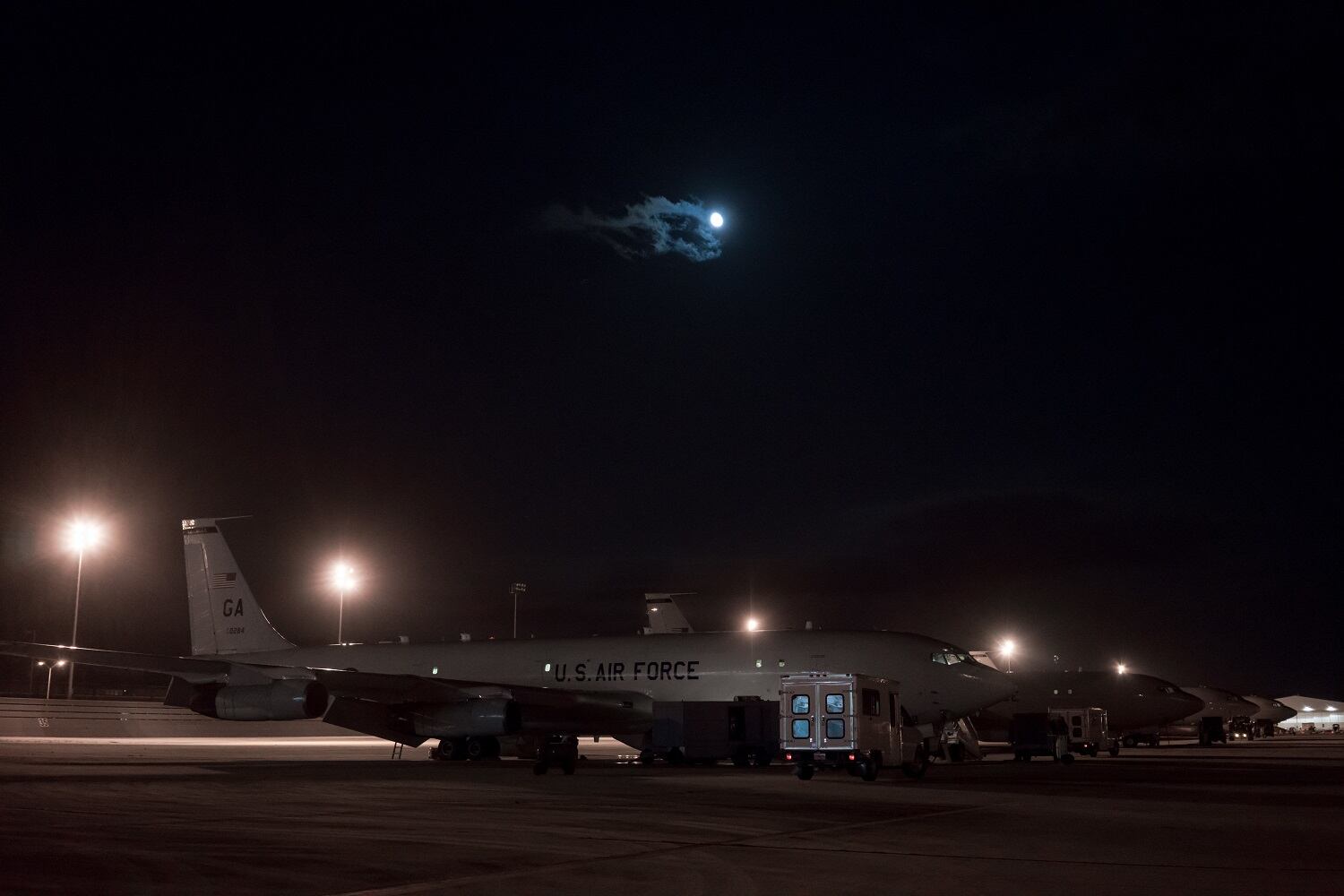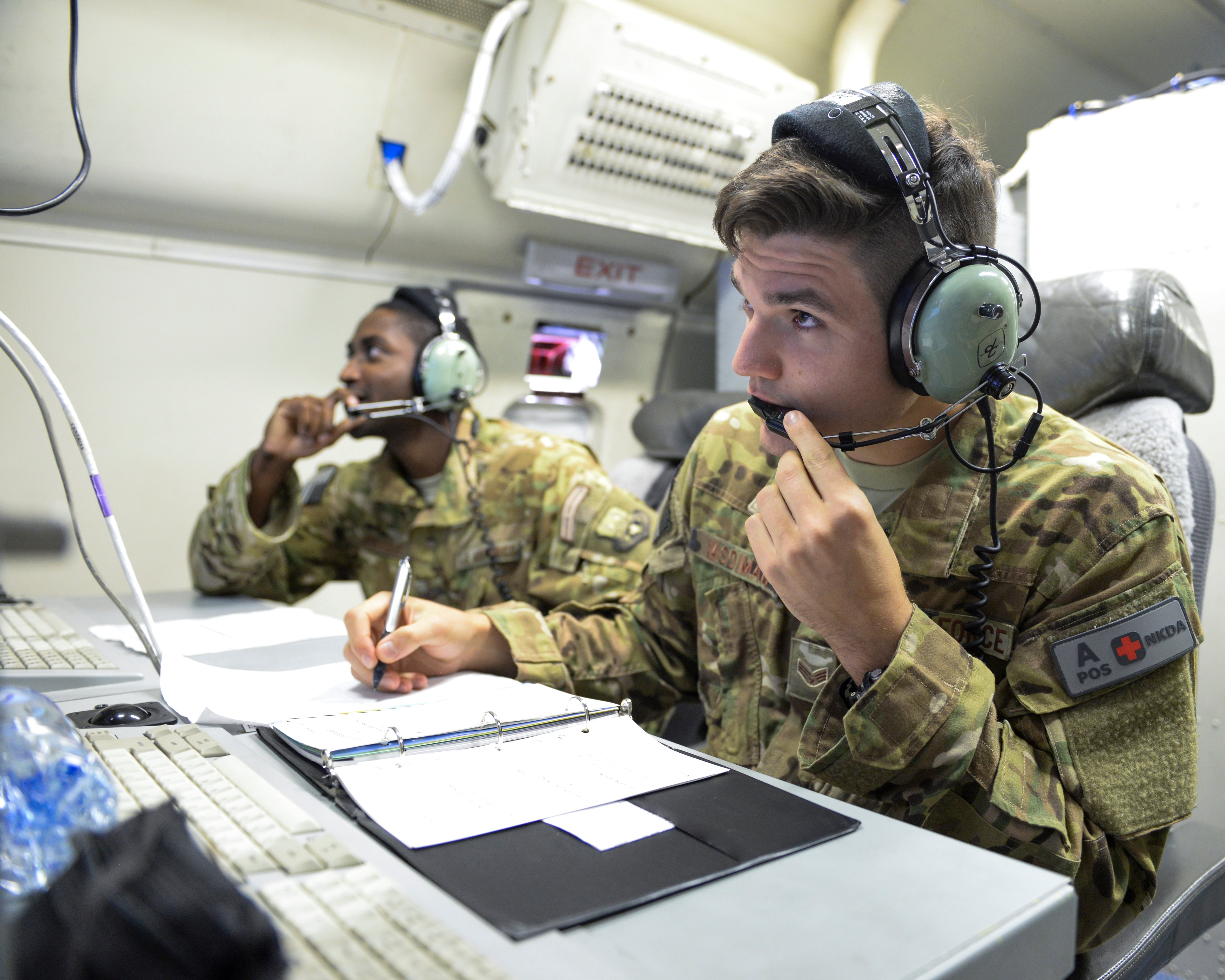The Air Force began conducting its own depot maintenance for JSTARS July 17 at Robins Air Force Base, Georgia, in an effort to field the Air Force’s primary ground surveillance and battle management aircraft quicker, despite contractor shortfalls.
Maintenance for the E-8C Joint Surveillance Target Attack Radar System aircraft was previously done exclusively by Northrop Grumman at a facility in Louisiana, but the service has said the maintenance was too slow. Now, Warner Robins Air Logistics Complex will supplement the contractors to speed up the process.
“Historically, the contractor has averaged about 400 days per aircraft,” Air Force Material Command spokesman Derek Kaufman told Air Force Times.
“The driver has been to increase the number of aircraft available for operations and training. The Air Force intends to fly JSTARS into the mid-to-late 2020s, while the follow-on Advanced Battle Management System [ABMS] is developed," Kaufman said.
The Air Force has not released exactly what the ABMS entails, but it will fuse information from satellites, drones, ground sensors and manned ISR aircraft. Because Robbins AFB is also playing host to the initial elements of the ABMS program, Kaufman said the base will continue to play a role in the command and control mission.
In the meantime, maintenance delays for existing JSTARS must be streamlined, according to the press release announcing the push.
“We’ve been focusing intensely for a couple of years on improving contractor-led depot performance, but aircraft are still remaining in depot too long,” said Steven Wert, the Air Force’s program executive officer for battle management, who oversees these efforts. “We have to find ways to increase throughput and overall depot capacity, and we believe this option is well worth exploring.”
RELATED

The work done at the new facility will help the Air Force better understand the costs of performing JSTARS depot maintenance on its own.
“Should this first organic induction prove successful, we currently plan two more JSTARS aircraft to be inducted, one per year,” Kaufman said.
It’s important to note that this maintenance plan is separate from efforts to retire the Air Force’s fleet of 17 JSTARS. The 2019 defense authorization bill allocates funds for the ABMS program, but the Air Force will not be able to retire any of these planes until the second phase of that program is declared operational, according to Congress' bill.
As a result, service officials are anxious to get more JSTARS into the air for operations and training while waiting to bring the ABMS program online.
In addition to slow delivery, Northrop Grumman has had some issues with their maintenance in the past. An Air Force investigation released in March 2017 showed that contract maintainers left drainage holes covered on the bottom of a JSTARS’ radome during depot maintenance between March 2015 and July 2016. This caused the radome to collect water and inflicted $7.35 million worth of damage to the aircraft.

That damage was discovered on July 28, 2016, when the JSTARS aircraft assigned to the 116th Air Control Wing at Robins experienced radar failures during checks conducted by Air Force radar specialists.
“When the specialists opened the radome for the radar, they discovered portions of the radar immersed in standing water with visible corrosion damage,” the report states.
In the future, inducting more aircraft into the Air Force’s own depot maintenance facility could offer some advantages, according to the service. The program office, operational wings, functional check flight crews and Air Combat Command’s flight test detachment are all co-located at Robins. These locality benefits could help cut down on transportation costs.
Additionally, start-up costs should be minimal because Robins already hosts the E-8C operational wings, according to the Air Force.
“Our dedicated professionals and mission partners have extensive experience in overhauling and modifying large aircraft like the C-130, C-17 and C-5 fleet. I’m confident our team can leverage this experience and help the JSTARS community improve aircraft availability,” said Brig. Gen. John Kubinec, commander of Warner Robins Air Logistics Complex, in another press release. “Our team is excited about this opportunity and we stand ready to support this effort by working closely with the PEO and Northrop Grumman.”
The Air Force still has an agreement with Northrop Grumman that runs through 2022, called a Total System Support Responsibility contract. The depot maintenance at Robins “would supplement, not supplant," the work being done by the existing contract, the Air Force clarified.
“In fact, the Air Force will need Northrop’s help to successfully execute this proof of concept,” according to the release.
Kyle Rempfer was an editor and reporter who has covered combat operations, criminal cases, foreign military assistance and training accidents. Before entering journalism, Kyle served in U.S. Air Force Special Tactics and deployed in 2014 to Paktika Province, Afghanistan, and Baghdad, Iraq.










